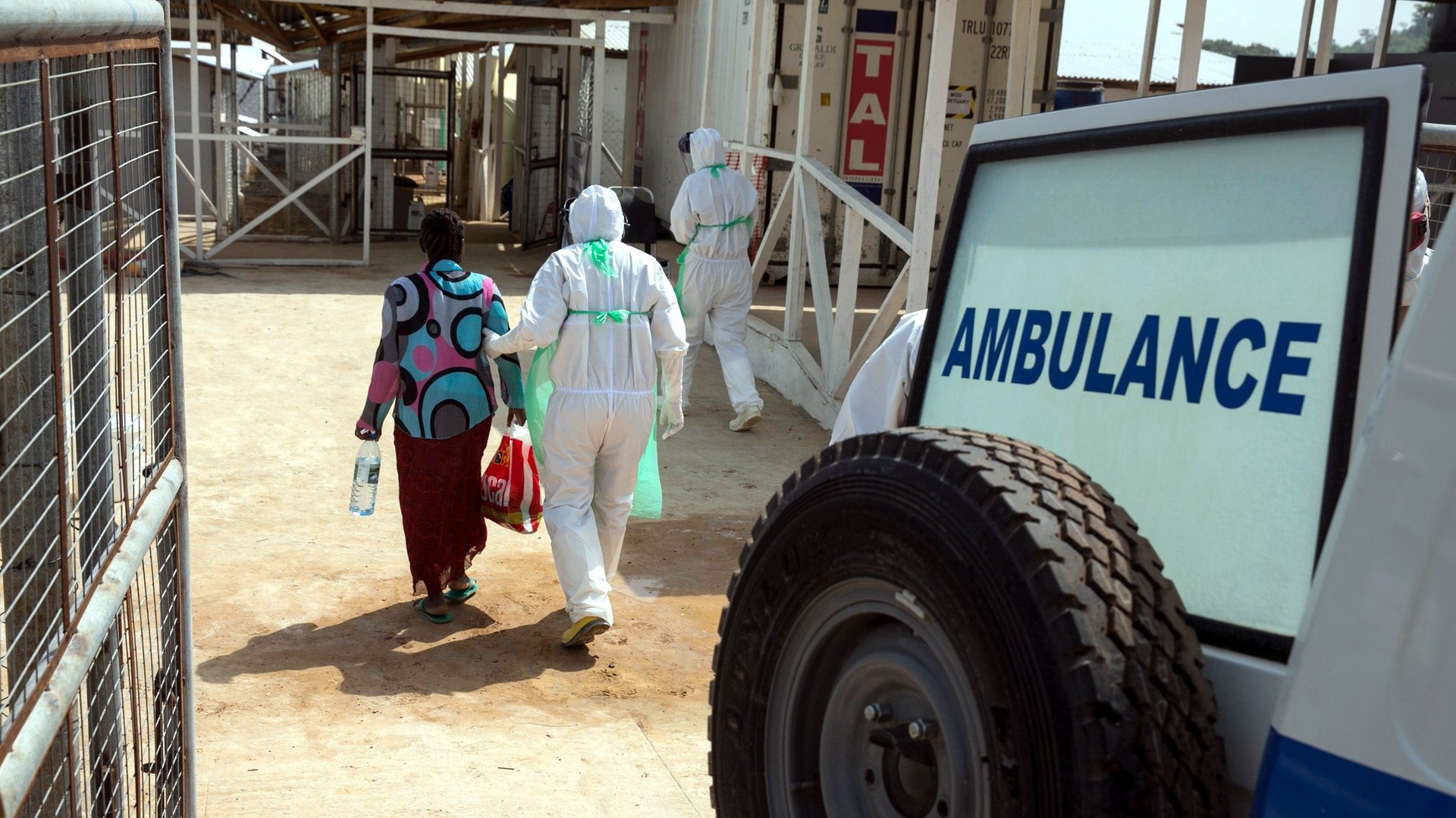No, the IMF is not behind the Ebola epidemic
The International Monetary Fund gets blamed for many ills, thanks to its role as the global purveyor of fiscal rectitude. But four British academics writing in the medical journal Lancet have taken the IMF’s bogeyman reputation too far, arguing that the organization bears a share of the blame for the Ebola epidemic currently devastating west Africa.


The International Monetary Fund gets blamed for many ills, thanks to its role as the global purveyor of fiscal rectitude. But four British academics writing in the medical journal Lancet have taken the IMF’s bogeyman reputation too far, arguing that the organization bears a share of the blame for the Ebola epidemic currently devastating west Africa.
The writers argue that the IMF’s policy of prioritizing debt repayment over domestic spending weakened the public health infrastructure of Sierra Leone, Guinea and Liberia, the countries hit hardest by the epidemic, and all participants in IMF lending programs.
The article notes that the three countries did not meet all of the IMF’s goals for social spending, that the Fund has allegedly capped public sector salaries, and promoted the decentralization of health systems from national to local administration.
But most of these arguments either miss the mark or simply aren’t true. In its rebuttal, the IMF notes that health care spending actually rose in all three countries between 2010 and 2013: By 0.7 percentage points of GDP in Guinea, by 1.6 points in Liberia, and by 0.24 points in Sierra Leone. It also notes that the IMF has not enforced public sector wage limits in any of the countries since 2000, and that it found $130 million in additional funds for the three countries to fight the epidemic.
The organization also points to broader research that shows health spending tends to increase in countries with IMF programs, compared to those without. It attributes this to IMF reforms that increase tax revenue and bolster economic growth, giving governments more revenue to use—and to international donors reassured by the organization’s imprimatur.
Which makes sense: governments only accept IMF programs when they have no other options; austerity policies tend to only look attractive when the other option is economic collapse.
None of this is to say that the IMF is perfect, or that it doesn’t have a history of incorrectly applying austerity when debt reductions would be a smarter path—a history that it has been willing to acknowledge more readily in recent years.
But given the myriad challenges faced by the west African countries dealing with Ebola—including recent civil strife, corruption, and a long list of other domestic priorities—the primary challenges to public health administration don’t come from the global monetary authority.